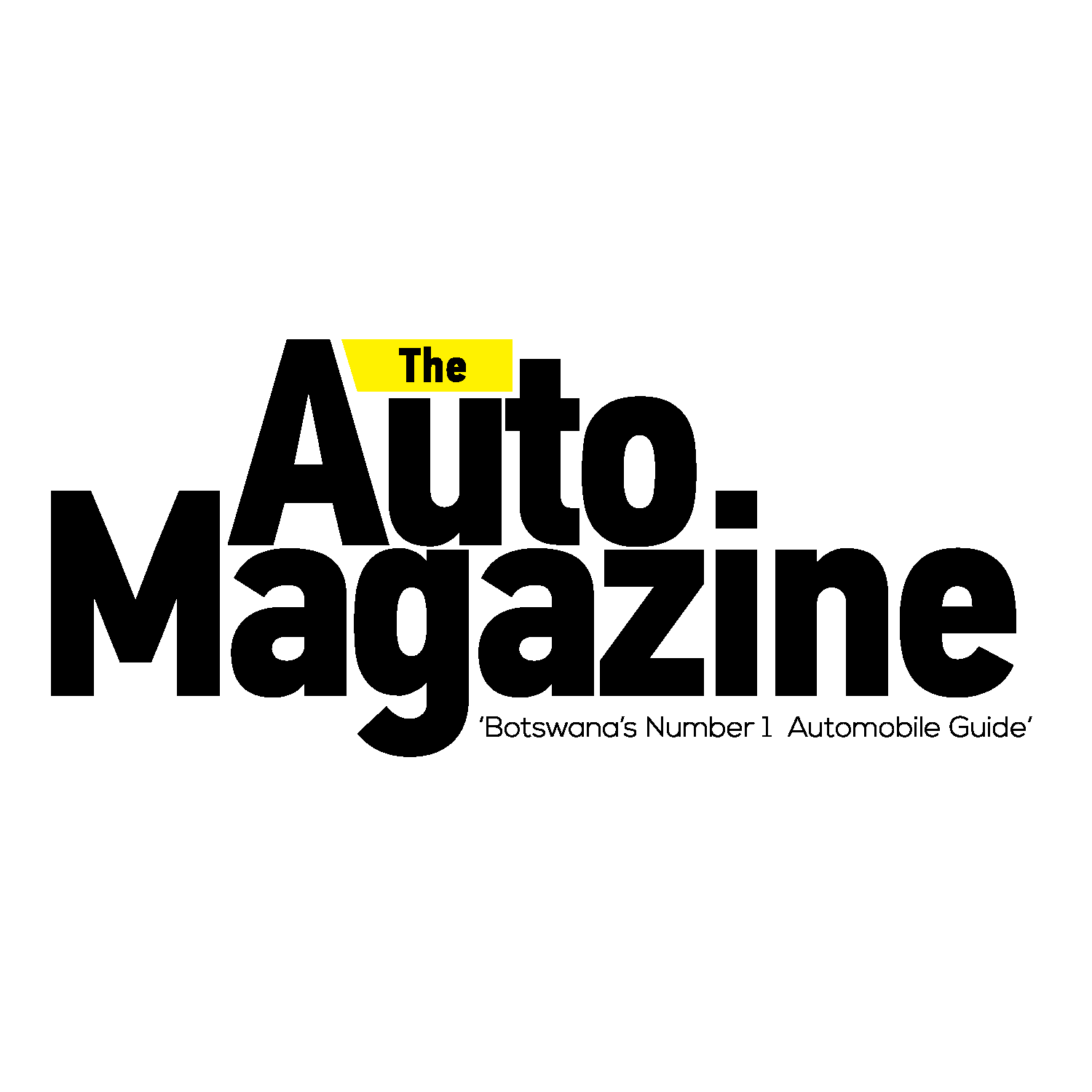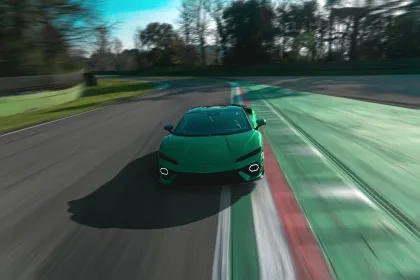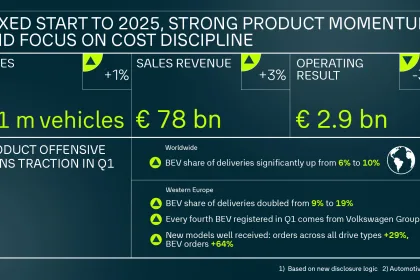- Robust financial results for 2023 show that the Group delivers reliably in a challenging environment
- All brand groups contributed to the operating profit of EUR 22.6 billion; operating profit reached EUR 25.8 billion, when adjusted for valuation effects in particular from commodity hedging
- 2023 was a year of restructuring, with consistent implementation of the TOP-10 program
- Comprehensive earnings programs launched; debut of the all-electric premium platform PPE and a record number of model premieres inspire confidence for 2024
- With regenerate+, the Group is establishing a holistic sustainability strategy and assuming social responsibility
- Oliver Blume, CEO Volkswagen Group: “In 2023, we have established a solid foundation. We are aware of our current challenges and are tackling them rigorously in order to leverage the enormous potential of the Volkswagen Group. With inspiring products, a consistent strategy and a clear focus on implementation, we are looking forward to the 2024 financial year with confidence. The Volkswagen Group is entering the long-distance race of transformation from a position of strength.”
- Arno Antlitz, CFO and COO Volkswagen Group: “In a challenging environment, Volkswagen Group delivered robust results in 2023. That is what we want to build on this year. To ensure that we remain successful sustainably, we will focus in 2024 on ramping up new vehicles, reducing costs, making greater use of synergies within the Group, and establishing more robust regional positioning also by continuing to grow profitably in North America.”
Volkswagen Group achieved robust financial results in a challenging environment in 2023. Thanks to progress in electrification and a flexible product strategy, the Group successfully is able to meet customers’ needs worldwide. At the same time, 2023 was a year of restructuring for Volkswagen Group. In many areas of the TOP-10 program, the Group has made progress faster than originally planned. With more than 30 new products, 2024 will be the year of world premieres, with highlights including the high-performance all-electric vehicles based on the new PPE premium platform. Volkswagen Group is therefore confident about the current year and an accelerated ramp-up from 2025 onwards. The overarching Group goal remains sustainable, value-creating growth.
Oliver Blume, CEO Volkswagen Group, said: “In 2023, we have established a solid foundation. We are aware of our current challenges and are tackling them rigorously in order to leverage the enormous potential of the Volkswagen Group. With inspiring products, a consistent strategy and a clear focus on implementation, we are looking forward to the 2024 financial year with confidence. The Volkswagen Group is entering the long-distance race of transformation from a position of strength. We are now preparing the Group for sustainable positive development. With our broad and constantly growing product portfolio, we can fulfil the wishes of all our customers globally like no other manufacturer. This flexibility is a real competitive advantage that will enable us to remain successful in the future.”
Robust results and performance programs stabilize future development
In 2023, Volkswagen Group achieved robust results in a challenging environment and proved that the Group delivers reliably with its strong brands. Deliveries increased 12 percent to 9.24 million vehicles, with all regions contributing to this increase. With sales revenue of EUR 322.3 billion, an operating profit of EUR 22.6 billion and a profit after tax of EUR 17.9 billion, Volkswagen Group demonstrated the resilience of its business model. The operating return on sales before special items amounted to 7.0 percent, despite considerable headwinds from the valuation of commodity derivatives, which had a positive impact on the operating profit in the previous year. Adjusted for these valuation effects, the operating profit reached EUR 25.8 billion, which corresponds to a margin of 8 percent. The Automotive Division’s net cash flow rose to EUR 10.7 billion. With net liquidity in the Automotive Division of EUR 40.3 billion at the end of the year, the Group is in a very robust financial position. Earnings per preferred share increased by EUR 2.26 to EUR 31.98 (+8 percent).
To note, Volkswagen Group had already published the Group’s key figures for the past financial year and an outlook for 2024 on March 1, 2024.
The Board of Management and Supervisory Board are proposing a dividend of EUR 9.00 per ordinary share and EUR 9.06 per preferred share to the Annual General Meeting, representing an increase of EUR 0.30 per ordinary and preferred share, respectively, compared to the previous year’s figures. The payout ratio corresponds to 28 percent.
Share of electric vehicles in deliveries continuously increased
Electrification gained significant traction in the past year. Across all quarters, the share of battery-electric vehicles in deliveries rose successively, peaking at around 10 percent in the fourth quarter. In the full year, the BEV share reached 8.3 percent – a new record. In absolute figures, Volkswagen Group delivered 771,100 battery electric vehicles last year, which corresponds to an increase of 35 percent compared to 2022, driven by growth in all regions. The Group has, once again, confirmed its leading position in this segment in Europe.
Arno Antlitz, CFO and COO Volkswagen Group, said: “In a challenging environment, Volkswagen Group delivered robust results in 2023. That is what we want to build on this year. The Group is well-positioned and operates from a financially strong position. On this basis, we will consistently drive forward our transformation towards electromobility and digitalization. To ensure that we remain successful sustainably, we will focus in 2024 on ramping up new vehicles, reducing costs, making greater use of synergies within the Group and establishing more robust regional positioning also by continuing to grow profitably in North America.”
Investment peaks this year and declines to follow
The Group continues to consistently pursue strategic investment planning to further increase competitiveness, expand its activities in the most attractive growth markets and strengthen the entire product portfolio. At the same time, by making greater use of Group synergies, investments in the upcoming five-year plan for the years 2025 to 2029 can be limited to EUR 170 billion. This will be invested primarily in new products, strengthening the regions, in the battery business and platforms for battery electric vehicles and in models with modern, increasingly hybridized combustion engines. Investments are expected to peak in 2024 and then approach the target level of 11 percent of sales revenue by 2027.
Performance programs with a sustainable effect on results
Volkswagen Group is implementing the largest earnings program ever initiated in the Group and is aiming for a sustainable effect of more than EUR 10 billion across the entire Group by the end of 2024. This will also provide cushioning for adverse effects such as inflation and increased costs. The company is focusing on measures to increase performance and reduce costs by optimizing material and product costs, reducing fixed and production costs, and increasing earnings, both in sales and after sales.
The performance programs, developed across all brands, offer a threefold opportunity. They are intended not only to increase the Group’s competitiveness and improve efficiency, but also to free up financial resources to invest in products and new business areas to better meet global customer requirements in the long term. Additionally, they help to secure jobs and locations in the long term. These programs are continuously developed further to be able to operate successfully in a dynamically changing market.
Introduction of the PPE platform for more performance and flexibility
First fruits of the realignment can be seen with the launch of the all-electric premium platform PPE, which stands for performance, flexibility, and scalability. Following the example of the MEB platform, the PPE platform enables the efficient use of synergies in the premium and luxury segments.
The portfolio will be significantly upgraded again in 2024 with important bestsellers such as the Golf, Tiguan, Passat, Octavia and Superb, often enhanced with modern hybrid technology, and the all-electric MEB family. All upgrades will further strengthen the Group’s position. In addition, there are completely new all-electric models such as the Porsche Macan Electric and the Audi Q6 e-tron01 on the Premium Platform Electric as well as the MEB-based VW ID.702 and ID.7 Tourer03, the CUPRA Tavascan04 and the VW ID. Buzz01with a long wheelbase.
Due to the numerous product highlights, the Group expects incoming orders in Western Europe to pick up speed in the coming months, compared to the previous year. This also applies to the all-electric vehicles that are already available and for which Volkswagen Group has started the new year with a clearly positive trend, compared to the previous year’s period.
Overall, the Group is confident about a record year for new models in 2024, in which more than 30 new product launches are planned thanks to powerful platforms. Supported by a strong operating business, the Group is also planning further investments in the battery activities and strengthening the regions.
Flexible strategy
Volkswagen Group is convinced that the future of mobility is electric. While some countries continue to show an impressive pace of transformation, the ramp-up of electric mobility in other regions is unfolding less quickly than expected. Volkswagen Group’s strategy is therefore characterized by flexibility. While extensive investments are being made in the expansion of electric mobility, highly competitive, efficient, and attractive models with combustion engines will remain part of the product range during the transition phase. Improved and new plug-in hybrids complement the range in many markets.
All brand groups contribute to the development of the operating profit
In the Passenger Cars segment, all brand groups achieved good results in 2023. Not only was sales growth strong, but operating profit before special items adjusted for the effects of commodity hedging also increased across all brands.
The operating return on sales of the Brand Group Core (Volkswagen, Volkswagen Commercial Vehicles, Škoda, SEAT/CUPRA) rose to 5.3 percent (3.6 percent), which is primarily attributable to the strong increase in sales revenue of 21 percent to EUR 137.8 billion. With this operating profit, the Brand Group Core has taken an important first step towards its strategic return target of 8 percent.
Sales revenue of the Brand Group Progressive (Audi, Lamborghini, Bentley, Ducati) rose to EUR 69.9 billion (+13 percent) in 2023. The operating profit decreased to EUR 6.3 billion. Before valuation effects in particular from commodity hedging, operating profit improved to EUR 7.7 billion. The operating return on sales amounted to 9.0 percent (12.3 percent). Adjusted for valuation effects of EUR -1.4 billion, it rose to 11.0 percent (10.6 percent).
Brand Group Sport Luxury (Porsche) continued its successful track record. Its sales revenue increased to EUR 37.3 billion (EUR 34.6 billion), while the operating return on sales remained at the previous year’s level of 18.6 percent despite the headwinds from increased costs for product launches and higher production costs.
The Financial Services Division’s operating profit contributed EUR 3.8 billion to the Group result but was around a third below the previous year’s high level. This is due to the expected normalization of used car prices. In 2021 and 2022, the residual values of used cars rose to unprecedented levels due to the semiconductor-related shortages of new vehicles. The group recognized early on that this level would not be sustainable and planned accordingly.
Brand Group Trucks (TRATON: MAN, Scania, Navistar, Volkswagen Truck & Bus) increased sales to EUR 45.7 billion (EUR 39.5 billion) due to higher volumes, a positive market and product mix, better unit prices and growth in the vehicle service business. The TRATON Group significantly improved its operating margin to 8.1 percent (4 percent) with an operating profit of EUR 3.7 billion (EUR 1.6 billion).
At CARIAD, revenue from contract licenses rose by around 30 percent to EUR 1.1 billion, as the software is being used in increasingly more Group vehicles, as planned. Due to the business model, this division recorded an operating loss of EUR 2.4 billion, as CARIAD makes significant advance payments for future software architectures, which are remunerated via license payments. In operational terms, the Group in the software area has focused on launching important products such as the Porsche Macan Electric and the Audi Q6 e-tron this year.
The development of the battery business is also continuing to make progress. However, higher investments and the costs of setting up teams in various countries led to an operating loss of EUR 0.4 billion and a net cash outflow of EUR 0.8 billion. This relates to investments in the Group’s battery activities, which are essential for the successful ramp-up of electric vehicle production.
Holistic approach to sustainability through regenerate+
The Volkswagen Group takes a holistic approach to sustainability: in terms of nature, employees, society and value-creating entrepreneurship. The Group has therefore established a holistic sustainability strategy. It applies Group-wide and is the basis for ambitious sustainability programs of all Group brands.
A key lever for reducing emissions is the ramp-up of electromobility. With its sustainability strategy, Volkswagen Group 2024 is providing important impetus and assuming responsibility. For example, it is driving forward one of the most ambitious e-offensives in the automotive industry across all vehicle segments.
Production is increasingly coming into focus. The Volkswagen Group is aiming to achieve balance sheet carbon neutrality at all production sites worldwide by 2040 – ten years earlier than planned. The aim is to reduce 90 percent of all greenhouse gas emissions compared to 2018. The Group intends to achieve this by converting its energy supply and increasing energy efficiency, among other measures. For example, by 2030, 100 percent of the external electricity supply at all locations, including China, is to come from CO2-neutral sources.All European locations are already supplied with 100 percent green electricity. Eight plants in Europe already operate on balance sheet carbon-neutral basis.















